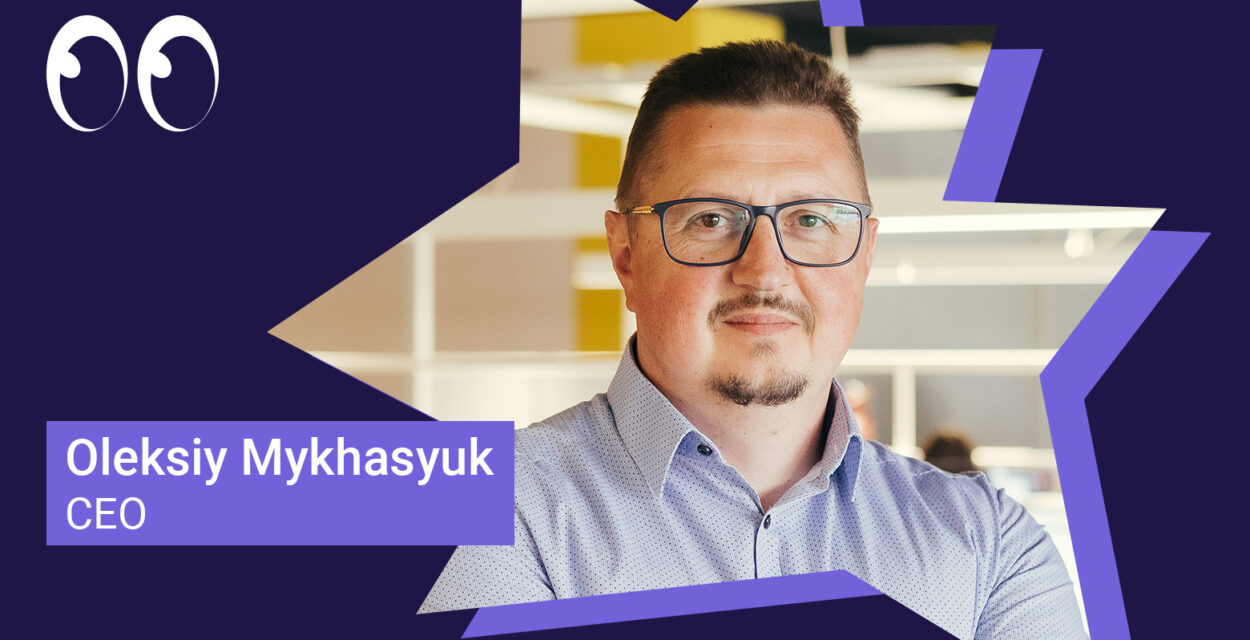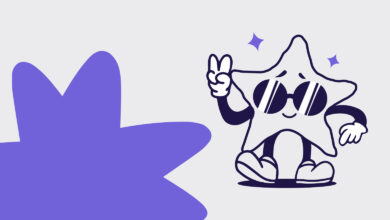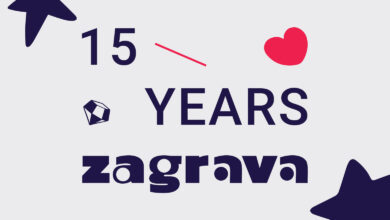“Without a team, an IT company is just a computer warehouse”: interview with Oleksiy Mykhasyuk, Director of Zagrava Games studio

Unlike many other industries, coronavirus crisis has had only a positive impact on the gaming industry: demand for games has increased. And therefore, on specialists too. How to compete for specialists in an “overheated” market and attract talent from the school bench? What skills are needed to start a career in game development, and the key question HR managers mentally ask themselves after the final interview with the candidate? The editors of the online magazine The Point learned about this from Oleksiy Mikhasyuk, Director of Zagrava Games – a local studio from Rivne, which is part of the international company Playrix and develops world-class projects.

About the growth rate of the game development industry, hit games and changes in the gamers’ portrait
– Oleksiy, the game development market is growing every year, and coronavirus crisis only contributed to its development – according to various sources, the total volume of the industry in 2020 grew by at least 25%. What are your observations? Please tell us about the main trends of the game development market.
– At the beginning of the pandemic, we didn’t know which way the pendulum would swing. Pessimistic expectations were primarily associated with the risk of many people losing their jobs – for this; the gaming industry would not be able to retain some of the solvent players, whose involvement brings companies profit.
However, it turned out the opposite: the quarantine made it impossible to have fun, visit cinemas and concerts, but online and mobile games remained available. This can be compared to what happened in the 30s of the twentieth century – the “golden age” of Hollywood began against the background of the Great Depression. People were ready to use their last money to buy movie tickets, just to distract themselves from problems and get positive emotions. Now, in difficult pandemic times, people are striving for the same – and not “shooters”, but light, kind and fun games. This is exactly what we offer: our games do not have age restrictions, they are good stories that improve the mood – this is not enough for users.
The demand for games has indeed grown significantly: for example, according to the Newzoo platform, the market turnover of $ 75-77 billion was predicted at the beginning of 2020. The actual turnover at the end of 2020 was more than $ 90 billion. And in 2021, it is projected to grow by another 30%, therefore, the turnover will be about $ 120 billion.
People spend more time playing games, making more in-game purchases, and watching ads. This allowed Playrix (Zagrava Games studio is part of this group) to rise to the second place among mobile game developers in the world.
– Discover the secret: why do some games “take off” and attract millions of audiences, while others go unnoticed by gamers?
– I am sure that this secret would be worth several billion (smiles).
In my opinion, this is partly a happy accident. But first of all, the key to success is teamwork: artists, programmers, game designers, marketers…
You can come up with an interesting story, but not cope with the implementation. Or make a cool game, but don’t know how to sell it. Therefore, hits appear only as a result of synergy.

– How does user interest change? Tell us about your experience – after all, you and your team have released more than 50 games for clients from 11 countries over 10 years of work.
– The user’s profile picture has changed significantly. Even 6-7 years ago, the target audience was primarily housewives aged 30-35. Now there are more and more men among game lovers. The age of gamers has also changed: in addition to the hipster generation, the proportion of men 55+ is increasing – probably, games are replacing classic crosswords for the older audience.
Therefore, the task of our marketing department is changing: we need to attract, and more importantly, retain different segments of players. In addition to the basic mechanics, we come up with additional mechanisms, tasks, and mini-games. In particular, we launched “marketing creative content” – 15-second videos on Youtube, Facebook, Instagram, etc. that lead to the main Playrix games (users actively download or just remember and launch them).
– Which game and character are your personal favorites?
– I love Playrix games, especially Homescapes, the character-butler Austin, who manages everything.
About competition for specialists, growth-oriented talents, zero turnover, and the most important question during hiring
– Does this change the demand for talent? Which specialists are most in demand, given the specifics of your projects?
– For example, the trend I just described (marketing creative content) creates a huge demand for video designers and content directors of “short forms”.
In general, programmers constitute less than half of our staff. We are looking for artists, level designers, animators, and 3D specialists. The most difficult thing is to find specialists who are not trained by universities. For example, game designers for various areas – for example, describe the plot, characters, dialogues, game mechanics, and so on. First of all, we consider specialists with experience in the game industry for these positions, but there are few such candidates – so we grow talents ourselves. We consider not only students, but also mature candidates, even without work experience. These should be people who love games, have a good sense of humor, are interested in modern culture and are guided by fresh memes, are able to express their thoughts and write such things in a meaningful way. This helps you create trending characters and stories. And our training programs help them learn special skills.

We develop new projects, as well as support successful games that have already been released and have tens of millions of users. Recently, we opened a new direction – co-development, when part of our team helps Playrix projects. The direction is developing rapidly – in particular, we are working with two flagship games, Fishdom and Homescapes. According to our forecasts, within a year we will become the largest IT Company in our region. We plan to launch many new projects.
– Attracting talent in the IT market is a “starred” task. What challenges does your company face during recruiting?
– The market is “overheated”. In the gaming industry, a lot of small players have recently joined quite a few, and this contributes to the corporatization of the market. For example, our joining Playrix in 2019 helped us to grow threefold, because it opened up a lot of new opportunities and access to the expertise of a large company, the “trendsetter” of the mobile segment in game development. Now, as a small-town company, we can be proud to develop world-class games.
Most small studios offer high remuneration, but they have a model of cooperation with FLP or salaries “in envelopes”. Now the situation is changing: we have official employment, “white” salaries, medical insurance, and so on. Therefore, it is difficult for small companies to compete with us in the market. At the same time, there are several major players who offer similar conditions. Therefore, it is becoming increasingly difficult to find a good specialist for adequate money.
We are convinced that talents should not be “bought”, but rather we help them grow in the company. “Jumpers” rarely stay in a team for long and always wait for an offer of $ 100 more to leave.
We rely on cooperation with young people – students and even schoolchildren. For several dozen of our colleagues, Zagrava is the first workplace – they have grown to become managers here. Most new employees with no work experience start their career in the company as testers.
This approach builds a loyal team. We don’t have a turnover problem at all – only 4 employees have left in the last 5 years.
– Impressive. But this creates another problem – the lack of “fresh blood” in the team, and therefore new ideas?
– The company is growing so dynamically that the opposite is true: we lack experienced colleagues who can pass on knowledge to newcomers. That’s why we often hire people “for growth”, and even specialists with minimal experience grow very quickly – hiring does not keep up with the needs of the business.
– What do you look for in candidates besides technical skills and knowledge – for example, soft skills, values, cultural compliance?
– Of course, we pay attention to personal qualities. After the final interview with the candidate, the HR manager and potential manager mentally ask themselves the question: “If this person knocks on my door at night – will I ask him to leave or invite him to the kitchen for tea?” We have a family – run corporate culture, and it is important for us, even though we are developing rapidly, to hire only those people who have similar values. This complicates the search process, but then helps us work productively and without conflicts that cannot be resolved.

– Ukrainian IT specialists are valued not only in our market, but also internationally. Or do you compete for talent with global projects?
– Major Ukrainian industry players are representative offices of international companies, also with a good attitude to the team, comfortable conditions. It is not easy, but interesting, to compete with such companies.
The task is complicated by the fact that many IT specialists are ready to consider only remote work, and therefore they do not care where the employer is located – in Ukraine, the USA or Australia. We have many advantages, but not all of them are recognized and relevant for candidates. In particular, official employment and salary are the basis for future well-being, while unofficial remuneration through international payment services is not. We work with this – we provide financial literacy training; we explain that the company does not just take on a large tax burden. The average age of our employees is up to 30 years, and few people think about retirement so early.
Therefore, we offer a range of other benefits that are interesting to different people. Three meals a day, snacks, healthy food – a huge selection of juices, dairy products, gluten-free cookies… Game rooms, cool health insurance, free vaccination, gym compensation and training. Regarding the last point, when there was an opportunity, we sent dozens of employees to international conferences, now we are relieving them of their work and paying for online conferences. If a person wants to complete training, the company almost always supports them, the only condition is to pay up to 15% of the cost (it has been proven in practice that this increases the motivation for training).
About adapting to the remote trend, integrating newcomers, team building on Goverla and recruiting schoolchildren
– How has your team’s work changed over the past year? How did you adapt to the new conditions?
– Until 2020, we refused to work with remote employees. We have a wonderful office in Rivne, and we are sure that this is the best way to organize your work. When the quarantine was announced, we were worried that we would not be able to maintain productivity, deadlines and quality of work. Fortunately, the fears turned out to be in vain, moreover, the speed of completing tasks even increased. Feedback from the team showed that in quarantine, people began to spend 10 hours at work instead of 8, simply because they need to do something in isolation.
Now we work in a hybrid format – in the office and remotely. Of course, offline work takes place in compliance with health requirements, in particular, if necessary, employees are tested for COVID-19 at the company’s expense.
We have reviewed the internal structure of the company. Now the team is divided into many flexible mini-teams (3-5 people), each with its own team leader. This makes it easier and faster for managers and teams to share information and solve problems.

– According to the reviews of companies, onboarding is not the most difficult task on remote circumstances: it is difficult for beginners to integrate into a team that they have never seen live. How do you work with it?
– We pay maximum attention to newcomers, literally describe them: we conduct office tours, introduce them to the team, give them large boxes with nice little things like branded T-shirts, notebooks, pens, and so on. We secure a personal mentor who talks about work processes, and hold meetings for feedback. For the first week, the newcomer almost does not receive work tasks; his/her priority is to study the new environment, rules, and documentation.
Now many remote workers are joining the team, but we also ask them from the company to come and spend at least a week in the office. “Live” acquaintance with colleagues, working side-by-side, professional discussions and informal communication, coffee breaks in game rooms-all this helps to establish a connection, creates a sense of belonging to the team. In particular, many of our new colleagues have extensive experience in freelancing, and this is an advantage – such specialists are able to work independently and for results.
But at the same time, it is important for us that each employee feels part of the team and behaves accordingly.
– And how did you adapt other HR processes to the new realities – for example, training, team building, etc.?
– Our team is constantly developing, and we used to conduct many training events offline. The office has all the necessary facilities – an art studio, training classes, mentors have compiled personal development programs, and so on. Now more events take place online. The workload of mentors has increased somewhat, especially since more time is spent on communication. Therefore,

On team building-we have always paid a lot of attention to this. For example, we used to constantly organize corporate events, sports events, and bowling tournaments. Now we also use any safe opportunity to spend time together to preserve our culture. For example, in the summer we went up to Goverla with the team. People overcame difficulties together, helped each other carry things, and shared water – it was a wonderful experience, which helped the team reach a new level of relations.
– How do you evaluate the work of employees and reward them for “super-effort”?
– The work is evaluated not by the time spent, but by the results. Of course, it is somewhat easier for programmers to set clear key performance indicators. Creative areas (artists, animators, game designers, etc.) are more difficult. Therefore, we divided project management into two areas: the producer is responsible for the quality of work, and the project manager is responsible for deadlines.
Any additional work is compensated. For example, if an employee becomes a mentor for a new employee, he/she will receive an additional payment. We conduct annual salary reviews for the entire team, plus once every six months-we additionally evaluate the results and increase the remuneration of high-performance specialists.
– What advantages of Zagrava Games are noted by your team? After all, it is the feedback of employees that is indicative.
– People choose to develop with us because they like what they do, as well as the relationship that the company builds with the team. We never intended to create a “galley” and “drain-away” the employees.
Moreover, our team consists of people who have joined us since high school. If we saw interest in the industry and potential, we invited high school students for an internship. Of course, they obtained permission from their parents and adhered to all the legal requirements that are very strict during the recruitment of minors (for example, regarding working hours).

Employers are tested for strength in difficult times. For example, our business was most affected by the crisis of 2014. There was no money even for rent and salaries. That’s why the other co-founders and I took loans from banks secured by our own real estate, but we were left without salaries, but we paid the team-so as not to lose people. A few months later, new contracts were signed and the situation stabilized.
We don’t brag about it, but I think this approach really shows that people come first. Without a team any IT company is just a warehouse of computers.
It is also important for people to feel the results of their work. It would seem-a trifle: to see the aquarium in the game Fishdom, which was made with his own hands. But this game is played by millions of people! This is very motivating and gives you a sense of involvement in a big project.
We are developing not only our own corporate brand, but also the brand of the city of Rivne. We are a socially responsible business; we work a lot with young people-several times a year we hold game jams, where participants have to make a simple prototype of the game with the support of our mentors. We cooperate with universities and show by example that you can find an excellent job with a high salary in your hometown.


